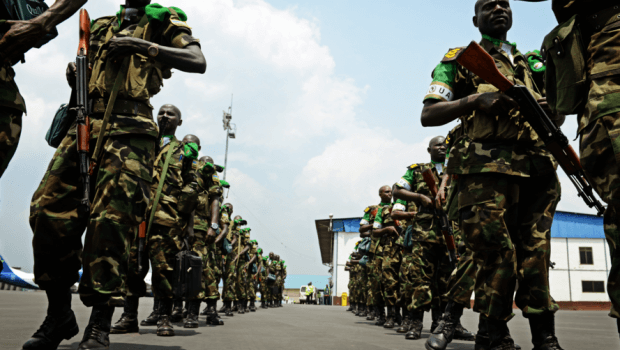The United States and other world powers could soon face a test of their commitment in protecting the world from regional atrocities, as it appears very likely that genocide could soon take place in the African nation of Burundi. The situation is eerily similar to the genocide that took place in Rwanda more than two decades ago, while world powers like the United States simply watched from afar.
In Burundi, the Hutu elites have largely hinted at plans to exterminate the country’s Tutsi minority. If this does indeed occur like many are expecting, it will represent a major test for the United States government, which many have said was a bystander during the situation in Rwanda.
All eyes will be on national security adviser Susan Rice and the United States ambassador to the United Nations Samantha Power. Rice dealt with key aspects of the country’s Rwanda policy during the genocide of 1994. Power heavily criticized the administration of Bill Clinton for taking very little action in Rwanda during that time.
Since she entered into the government, Power was worked to ensure that Barack Obama’s administration doesn’t simply sit back while genocide is occurring. In 2011, she urged for an intervention in Libya to prevent another killing spree.
Power said, “Our primary objective is to ensure that Burundi does not descend into mass violence.”
However, Power also noted that American leaders hope that the situation can be settled diplomatically, without having to send peacekeeping troops from the United Nations. The United States has long expressed reluctance in agreeing to costly missions of peacekeeping.
The situation in Burundi has been growing in intensity since April, when President Pierre Nkurunziza announced plans to run for a third term. This has caused much anger across the population of Burundi. Dead bodies are being found on almost a daily basis, and government officials have been threatening opposing politicians, journalists and advocates of human rights. So far, at least 240 people have been killed in the protests.
Recently, President Nkurunziza mandated that all Burundians hand over their weapons or else they would be “fought like enemies of the nation”. After that, Senate leader Révérien Ndikuriyo presented a speech that many believe was an attempt to incite violence.
Ndikuriyo said, “The day we unleash people and the order to work will be given, be careful. You will be fished out even if you hide under your bed.”
United Nations special advisor for the prevention of genocide Adama Dieng said, “The country appears to be on the verge of descending into violence that could escalate to atrocity crimes.”
Meanwhile, the United Nations Security Council has adopted a new resolution that condemns any potential violence, and they have threatened that additional measures will be taken should the situation continue to escalate. United Nations Secretary General Ban Ki-moon is reportedly considering construction of a United Nations presence in the country.
For now, Power wants to utilize every diplomatic option available before United Nations peacekeepers are sent in. She has stressed that it is her goal to not let things reach that point.
Meanwhile, the situation is looking increasingly difficult to control. President Nkurunziza regularly refuses requests to meet with outsiders, and officials in African countries are divided when it comes to ideas of preventing violence.
One anonymous senior United Nations official said, “If genocide were to start tomorrow the international community would not be ready. Twenty years have passed and the international community still doesn’t have the tools, the preparedness, and more worryingly, the political will, to deal with an outbreak of violence in a place like Burundi.”
The official went on to say that the Security Council has been dragging its feet on the issue for months. Mediation efforts have been largely unproductive, despite the efforts from President of Uganda Yoweri Museveni. There are also concerns that the pro-Tutsi government of Rwanda might intervene on behalf of the Tutsis in Burundi.
Elsewhere, the United States has largely been urging the Security Council to increase its involvement. It’s very clear that the United States does not want a similar situation as to what happened in 1994 in Rwanda.
The anonymous official added, “It is U.S. leadership that is forcing the council to deal with this. They got burned in 1994 and they don’t want it to happen again.”
There is one thing working in favor of the Americans, and that is that they have had previous failures in similar situations in the past. Clearly, many actions will be taken in order to prevent Burundi from becoming Rwanda 2.0.
Stay Connected